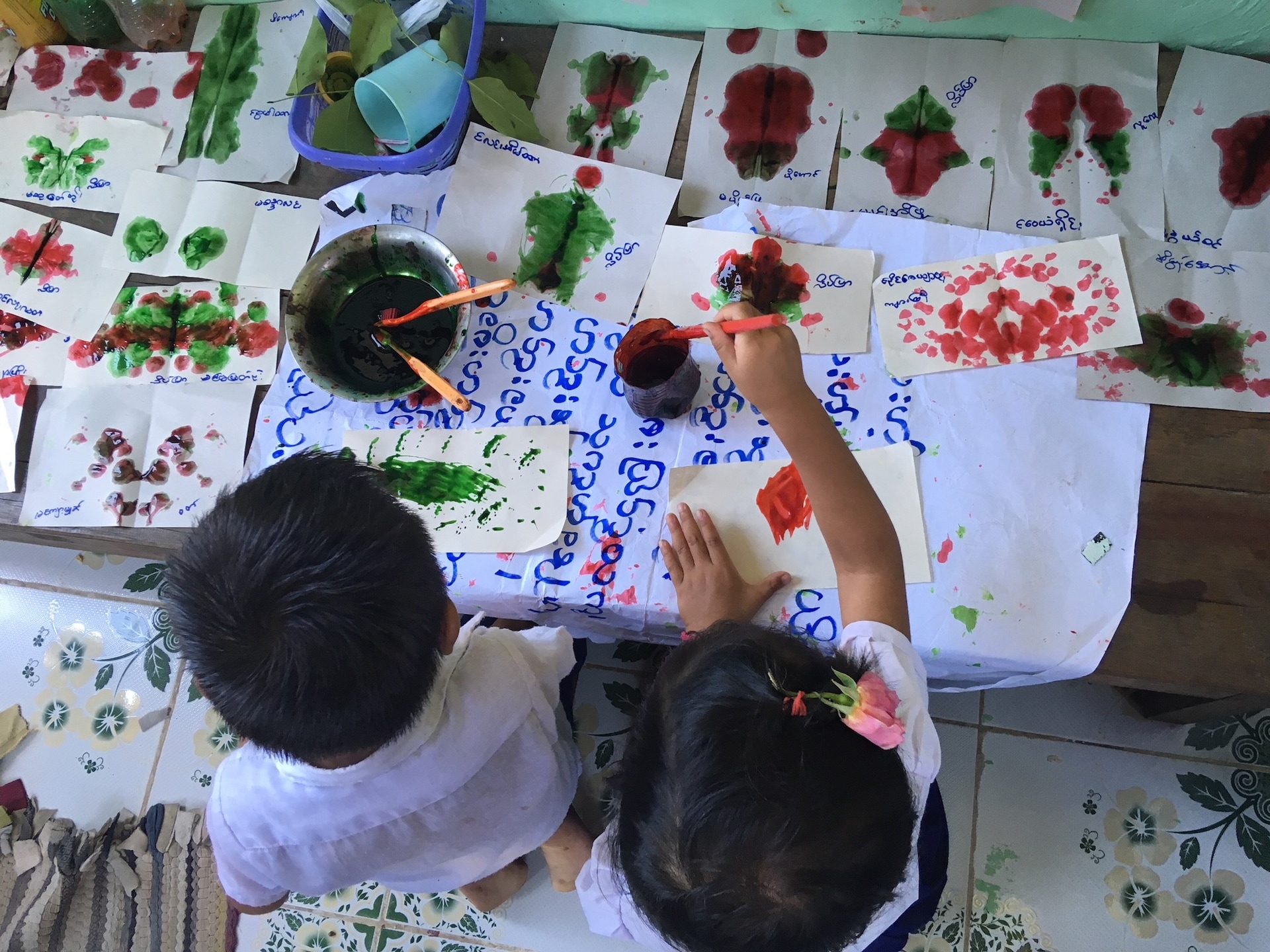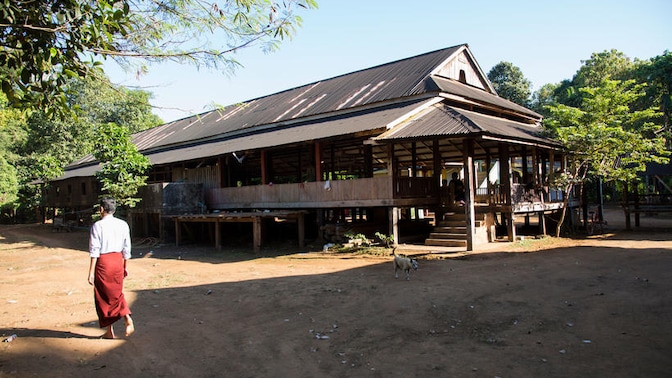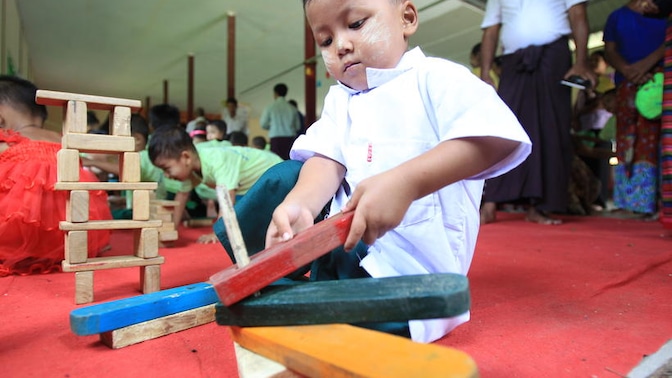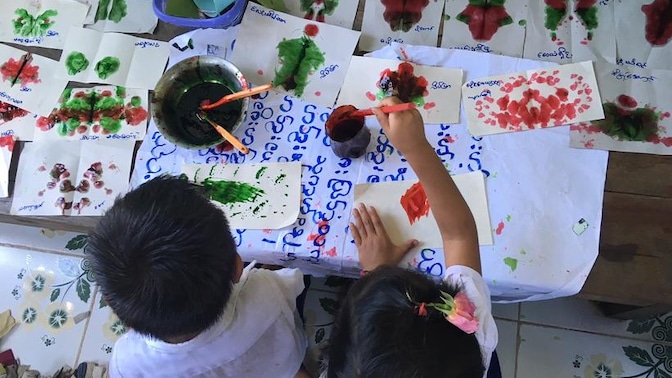Long-term collaboration brings long-term benefits to children in Myanmar

Nokia and Save the Children partnership in Myanmar was signed at the end of 2014, and activities began at the beginning of 2015. The 5 year collaboration produced two major projects, “The Best Start” project from 2015 to 2017 and the “Making Change Happen together” project from 2017 to 2019. Over those 5 years Save the Children and Nokia have worked in the communities of three townships to improve early learning and development opportunities for the most marginalized children.
The focus of the projects has been firstly on improving access to and quality of preschool education for the most marginalized children aged 0 to 5 in three ethno-linguistic minority townships of Hsipaw Township (Shan State), Hpa-An Township (Kayin State) and Oak Twin Township (Bago Region) and secondly, on advocacy and policy engagement in the national education sector. In national policy work the focus has been on strengthening of national education policies and practice to ensure implementation is based on child rights and child centered approaches in national education sector planning and programming.

A major achievement of this long-lasting partnership has been the establishment of 60 community-managed early childhood care and development (ECCD) facilities and 33 kindergarten classrooms.
This together with the support provided for the centers has helped 60 000 children to gain access to pre-school education.
The project has also strengthened the disaster preparedness of the local communities in these areas that are regularly affected by natural disasters.
As one goal has been to provide children with a sound foundation for their early learning, we have also supported 165 community libraries.
The last two years of the project have focused on sustaining the investments gained and ensuring the self-sustainability and quality of the community-managed ECCD centres. The communities have been prepared and trained to ensure continuous local funding for the centers, to keep track of salary payments, and to follow up on pupil enrolment. The ECCD management committees are also prepped to help the communities to manage the ECCD centers in the future.

Eeva Johansson/ Save the Children
To improve the quality of learning we have also strengthened the capacity of ECCD caregivers, kindergarten teachers, and township and community librarians through pre-service, discipline, inclusive education and child participation trainings and through monitoring kindergarten classes with the newly developed kindergarten quality framework. We have also raised communities’ awareness on the importance of schooling and on the kindergarten year.
In order to provide the best possible care and education for children in remote areas, Save the Children has improved information sharing between early childhood care and development network groups located throughout the country. A mobile application developed at the end of the first project phase with the support of Nokia is now in use in 21 townships and in 633 ECCD centers.
The ECCD Networks Group approach and ECCD data collection via mobile application continued during the second project phase in collaboration with the Department of Social Welfare in Myanmar, to track progress and address the urgent needs of ECCD and alternative parenting programmes. Having additional and more accurate data will also help the government to better allocate resources for ECCD.
Local ECCD network groups, having a critical role in ensuring the sustainability of community-managed ECCD centers, have been a critically important partner for the projects. These volunteer run groups support the communities by regularly monitoring the quality, attendance and sustainability of existing centers, by helping communities manage the centers, providing training and by coordinating the ECCD services in their localities.
When the project comes to an end in May 2020 Save the Children will hand over full management of the ECCD centers in Myanmar to the local communities. Strong ECCD network groups are essential for the centers to operate independently of Save the Children support. The groups are composed of local leaders, caregivers and ECCD management committee representatives, and at the national level these groups have recently been federated and registered as a CSO which will continue its work even after the Save the Children projects have ended.
Achievements
over 60,000 children (almost 29 000 girls and over 31 000 boys) are accessing educational facilities supported by the projects.
More than 78 000 children (more than 38 000 girls, 40 000 boys) have been reached directly with the activities conducted during the two projects supported by Nokia.
These projects have reached over 142 000 beneficiaries in total.
We have built and upgraded altogether:
- 30 new ECCD classrooms,
- 30 Alternative Parenting Education Service facilities and
- 33 Kindergarten classrooms

Thein Zaw / Save the Children

Save the Children Finland
165 community libraries have been supported
- The usage of the mobile application originally developed with NOKIA support has spread to new locations, improving data collection for ECCD Township Network Groups in 21 townships.
- Data from 663 ECCD centres and 71 Alternative Parenting Education services is collected with the help of this application.
- 1378 parents have participated the Alternative Parenting Education sessions.
The projects have been built to be truly sustainable and further develop long after Nokia and Save the Children have completed their parts.
Education is a right for all children.